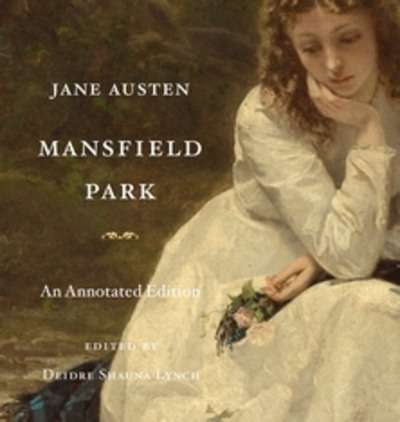Mansfield Park
An Annotated Edition

Editorial Harvard University Press
Fecha de edición septiembre 2016 · Edición nº 1
Idioma inglés
EAN 9780674058101
490 páginas
Libro
encuadernado en tapa dura
Resumen del libro
Jane Austens most ambitious novel, Mansfield Park, has always generated debate. Austen herself noted that debate when she conducted a reader survey, recording her acquaintances mixed reviews in a booklet she entitled 'Opinions of Mansfield Park.' Is this novels dutiful heroine, Fanny Price, admirable? Or is she (as Austens own mother asserted) 'insipid'? Is Fanny actually the heroine, or does that title belong more properly to her rival, Mary Crawford? Does Fannys uncle, Sir Thomas Bertram, act as her benefactor, or as a domestic tyrant? In her notes and introduction to this final volume in Harvards celebrated annotated Austen series, Deidre Shauna Lynch outlines the critical disagreements Mansfield Park has sparked and suggests that Austens design in writing the novel was to highlight, not downplay, the conflicted feelings its plot and heroine can inspire.
Lynch also engages head-on with the novels experimentalism, its technical virtuosity, and its undiminished capacity, two centuries later, to disturb and to move. Annotations clarify the nuances of Austens language and explain the novels literary allusions and its engagements with topical controversies over West Indian slavery and the conduct of Britains war against France. The volumes numerous illustrations enable readers to picture the world Mansfield Parks characters inhabit, underscoring the novels close attention to setting and settings impact on character.
Mansfield Park: An Annotated Edition opens up facets of the novel for even devoted Janeites while extending an open hand to less experienced readers. It will be a welcome addition to the shelf of any library.
Biografía del autor
Jane Austen (Steventon, 1775-Winchester, 1817) fue la séptima de ocho hermanos nacidos en el seno de una familia de la burguesía agraria británica. Su padre era párroco de Steventon y, además, daba clases particulares a alumnos que residían en la casa familiar, algo habitual en la época. Quizá por esta razón, tanto ella como el resto de sus hermanos, recibieron una educación "liberal" y alejada de las costumbres generales de su sociedad. Además de este ambiente familiar propicio, Jane tenía talento y vocación de escritora desde muy temprana edad. Se conservan multitud de cuadernos de notas en donde realizó sus primeras composiciones. Su obra se caracteriza por la descripción de las costumbres sociales de su entorno y época, la ironía con las que las presenta, y la profundidad y sutileza de la descripción psicológica de sus personajes. De sus novelas destacamos, además de x{0026}lt;i Orgullo y prejuiciox{0026}lt;/i , x{0026}lt;i Sentido y sensibilidadx{0026}lt;/i (también traducido como x{0026}lt;i Sensatez y sentimientox{0026}lt;/i ) y x{0026}lt;i Emma.x{0026}lt;/i








